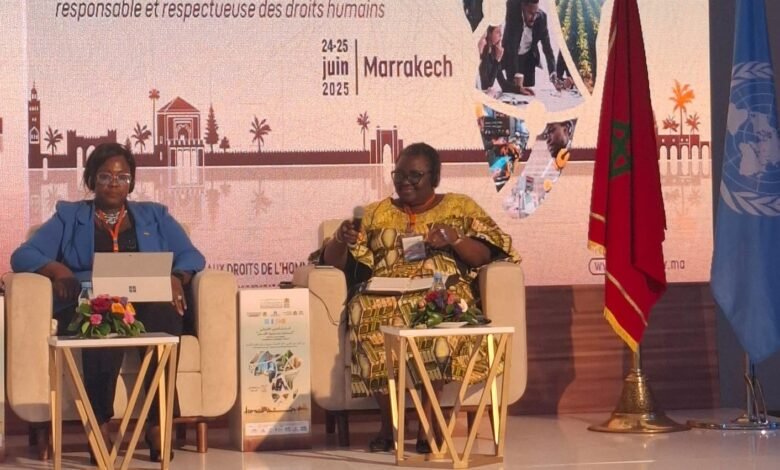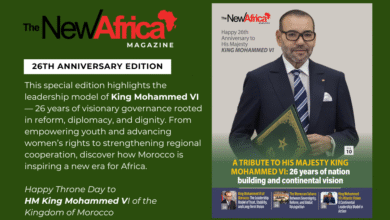Marrakech Forum Highlights Urgent Need for Stronger National Frameworks on Business and Human Rights

At the 2025 Regional Forum on Business and Human Rights in the Arab and African Regions, held from June 24 to 26 in Marrakech, Morocco, high-level delegates, human rights experts, and civil society leaders came together to examine how best to integrate international human rights principles into national business practices. The forum was organized by the Interministerial Delegation for Human Rights of the Kingdom of Morocco, in partnership with the Office of the United Nations High Commissioner for Human Rights (OHCHR), the United Nations Development Programme (UNDP), and the UN Working Group on Business and Human Rights.



One of the forum’s focal events was the panel discussion on “National Conditions and Prerequisites for Effective Implementation of the Principles on Business and Human Rights in the Arab-African Region.” Held on June 24, the session provided a platform for countries to share their institutional experiences and legal pathways in implementing the UN Guiding Principles on Business and Human Rights. It placed special emphasis on the need to align national systems with global standards while respecting local specificities.
Victoria de Mello of UNDP Africa moderated the panel, which featured a diverse group of speakers from across the region. Professor Damilola Sunday Olawuyi, a member of the UN Working Group on Business and Human Rights and UNESCO Chair at Hamad Bin Khalifa University, opened the dialogue by pointing out that the pace of adopting National Action Plans (NAPs) remains slow in many states. He argued that effective plans must be adapted to each country’s institutional capacity and socio-economic context, urging a move from commitment to implementation.
Livio Sarandrea, international adviser with UNDP, reinforced this call by warning against over-reliance on legislation without embedding human rights into business culture and operations. He advocated for a model where legal compliance is matched by proactive engagement and training across sectors.
Representing Morocco, Mohamed Adi—Director of Coordination and Promotion of Human Rights at the Interministerial Delegation—outlined national efforts to integrate international principles into public policy. He highlighted Morocco’s experience in institutional coordination as a model for strengthening accountability mechanisms and legal coherence.
Senegal’s Ngane Ndour, Director of Human Rights at the Ministry of Justice, presented legal reforms aimed at improving labor rights and social inclusion. He noted the importance of inclusive governance, particularly the involvement of affected communities in shaping and monitoring national strategies.
From Ghana, Mary Nartey of the Commission on Human Rights and Administrative Justice spoke about gender equality as a cornerstone of business and human rights planning. She stressed that reform efforts must address systemic imbalances and include protections for vulnerable groups.
Djibouti’s perspective was brought forward by Oumalkheir Attia Weiss of the National Human Rights Commission, who underscored the limitations faced by countries with fewer resources. Her intervention called for regional cooperation and knowledge-sharing as essential tools for capacity-building.
Pwadumdi Okoh, Deputy Legal Director at Nigeria’s National Human Rights Commission, focused on the critical need to enhance access to justice. She pointed to the development of judicial pathways and remedies for human rights violations by businesses as a major priority for national institutions.
The panel’s exchanges reinforced a shared understanding: that implementing the UN Guiding Principles in the Arab and African regions demands political commitment, robust institutions, and collaborative approaches. As the Marrakech forum unfolded, this session stood out as a call to transform international frameworks into living policies—grounded in local realities and driven by regional solidarity.





